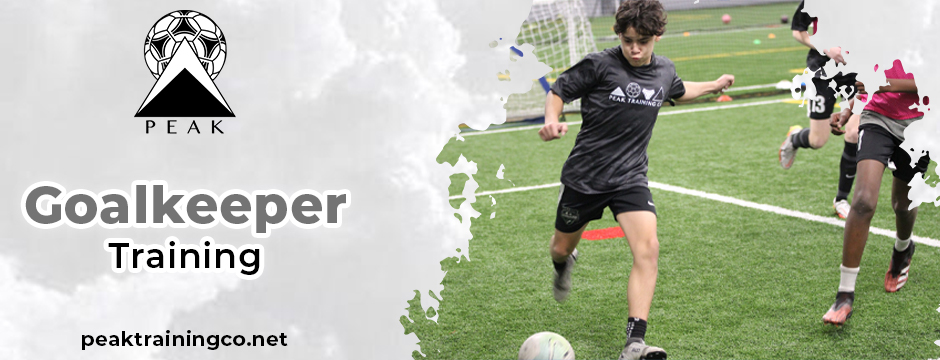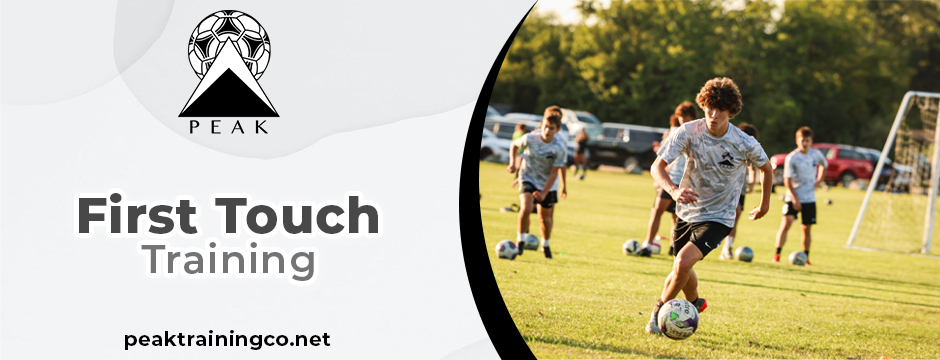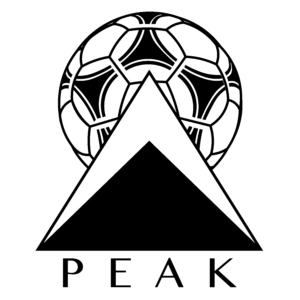Why Every Goalkeeper Needs Individualized Goalkeeper Training Programs
Goalkeepers occupy one of the most unique positions on the field. Their role demands more than just quick reflexes and diving prowess—it requires a training program that addresses individual strengths, weaknesses, and game scenarios. In this blog, we explore why every goalkeeper should invest in personalized development and how tailored practices can elevate performance. Through this particular blog, you will come to learn about the benefits of customized regimens, key aspects of designing a unique Goalkeeper training plan, and real-world examples that highlight success through personalization.

The Need for Individualization in Goalkeeper Training
Individualized training programs are essential for modern goalkeepers. While many drills can be applied generally, not all goalkeepers share the same physical attributes, technical skills, or psychological needs. A personalized regimen takes these factors into account, ensuring that every minute spent on drills is both efficient and effective. When a coach adapts goalkeeper training to meet the specific needs of an individual, they help bridge the gap between natural talent and peak performance.
Understanding the Unique Demands of the Position
The role of a goalkeeper is multi-faceted, involving quick decision-making, strong communication skills, and the ability to anticipate the opponent’s moves. Each goalkeeper’s style and physicality play a significant role in how they respond to game situations. A one-size-fits-all approach rarely works because it overlooks the nuances that define each player’s abilities. Customized goalkeeper training recognizes these unique demands by focusing on personalized technique adjustments, agility drills, and situational practices tailored to the individual’s style of play.
Benefits of Customized Training Programs
Individualized programs offer a range of benefits that generic training routines cannot match:
Enhanced Technical Skills
Personalized drills target specific technical shortcomings. Whether it’s improving catch technique or refining diving mechanics, customized routines ensure that each drill directly benefits the goalkeeper’s unique needs.
Improved Confidence and Mental Toughness
A training regimen that caters to personal development builds self-confidence. Knowing that every exercise is designed to improve one’s own performance can boost mental resilience, essential during high-pressure situations. The incorporation of mental conditioning in goalkeeper training can transform a player’s approach to adversity on the field.
Faster Progress and Adaptation
By addressing individual weaknesses and building on strengths, goalkeepers can progress faster. Coaches can adjust training intensity and focus based on ongoing assessments, ensuring that the regimen evolves with the player’s development. Personalized goalkeeper training helps maintain a clear trajectory toward improvement.
Designing Your Customized Training Plan
Creating a tailored training plan involves a thorough assessment of a goalkeeper’s current abilities and future goals. Here are key steps to designing an effective, individualized program:
Comprehensive Evaluation
The first step is to conduct a detailed evaluation. This involves analyzing the goalkeeper’s performance in matches and practice sessions, identifying strengths, and pinpointing areas for improvement. Video analysis, fitness tests, and feedback sessions are all valuable tools in this phase. This initial assessment forms the foundation for all subsequent goalkeeper training efforts.
Set Clear, Measurable Goals
Once areas of improvement are identified, it’s crucial to set specific goals. Whether it’s improving reaction time by 10% or mastering a new diving technique, clear objectives allow both the player and coach to track progress effectively. These goals help in structuring goalkeeper training sessions to ensure that every drill contributes to measurable improvement.
Develop Tailored Drills and Exercises
With a clear understanding of the player’s needs and goals, coaches can create drills that target specific skills. This might include reaction drills for faster decision-making, customized strength routines for better explosive power, or agility exercises that mimic real-game scenarios. Every component of this training should be designed to address the player’s individual challenges.
Monitor Progress and Adapt
The effectiveness of a training program depends on regular monitoring and adjustments. By tracking performance improvements through periodic evaluations, coaches can refine the training plan to better suit evolving needs. This adaptive approach to goalkeeper training ensures sustained growth and continuous improvement.
Integrating Technology and Data in Training
The modern era of sports training leverages technology to fine-tune performance. Video analysis, wearable tech, and performance tracking software offer invaluable insights into a goalkeeper’s actions and reactions. By integrating these tools, coaches can provide data-driven feedback that enhances individualized training plans.
For example, wearable sensors can measure reaction times, jump heights, and sprint speeds, offering objective data that guides goalkeeper training adjustments. This technology-driven approach ensures that every drill is backed by measurable improvements and that training evolves with the latest performance metrics.
Psychological and Tactical Dimensions
Beyond physical skills, individualized training programs also address the psychological and tactical aspects of goalkeeping. Mental resilience, decision-making, and game awareness are all critical components of a goalkeeper’s success. By including mental conditioning exercises and tactical simulations, a personalized program ensures that goalkeepers are prepared for the pressures of competitive play.
Personalized goalkeeper training routines incorporate visualization techniques, mindfulness practices, and scenario-based drills. These methods help players develop the mental fortitude required to stay calm under pressure and make split-second decisions that can change the course of a game.
The Role of a Dedicated Coach
A knowledgeable coach plays a pivotal role in the success of an individualized training program. Coaches who specialize in goalkeeping understand the intricacies of the position and can provide targeted feedback that makes a significant difference. A dedicated coach is instrumental in designing, implementing, and refining goalkeeper training sessions that cater to the individual needs of each player.
The coach’s ability to connect with the player, understand their unique challenges, and devise creative solutions is what sets successful programs apart. It is this personalized approach in training that transforms a good player into a great one.
Implementing Your Individualized Program
Once a tailored training plan is developed, the next step is implementation. Consistency and commitment are key to reaping the benefits of an individualized approach. Here are some tips for successful implementation:
Establish a Routine
Establish a regular practice regimen that is consistent. Balancing intensive drills with recovery periods is crucial for sustainable progress in training.
Embrace Flexibility
While routines are important, flexibility in training ensures that adjustments can be made as performance improves or as new challenges arise. A flexible approach to goalkeeper training means that the program can evolve alongside the goalkeeper’s development.
Encourage Open Communication
A continuous feedback loop between the player and coach is vital. Open dialogue helps identify areas where adjustments are needed and reinforces the player’s commitment to their personalized training plan.
Monitor Performance Metrics
Regular evaluations, whether through video analysis or performance tracking, help quantify progress. This data-driven approach keeps the goalkeeper training program aligned with the player’s evolving needs.

Final Thoughts
Individualized training programs are not just a luxury for goalkeepers—they are a necessity. Every goalkeeper brings a unique set of skills, physical attributes, and psychological strengths to the field. Tailoring training to these specific qualities can unlock hidden potential, leading to improved performance and a more commanding presence in achieving the goal. A personalized approach to goalkeeper training ensures that every drill, every exercise, and every session is optimized for the individual. This dedication to personalization transforms the training process from a generic routine into a powerful tool for professional growth.
At Peak Training, we are dedicated to unlocking every player’s potential through personalized development. Our program focuses on honing technical skills, refining movement off the ball, and boosting confidence. Designed for those seeking to elevate their game, our approach precisely transforms individual abilities into match-winning performance. With us, experience tailored sessions that cater to your unique needs and propel you to new heights in the field. Embrace progress and excellence with our expert guidance. Achieve greatness with Peak Training. Apart from this, if you are looking for the First touch training, you must connect with us now!
